You may have caught Sal Montgomery at one of the array of talks and presentations she’s given over the past few years; following one such evening hosted (virtually, of course) by Manchester University Canoe Club, we found ourselves jotting down more questions than it was reasonable to ask on the night, so we asked Sal if she’d mind writing out her answers for a blog post for you all to enjoy; here we go:
You mentioned a recent injury – as a physiotherapist, do you find you’re more aware or more dismissive of injuries?
Haha! I’m the worst patient!! I understand the injury and rehabilitation processes pretty well, but when the rivers are up it’s more of a ‘do what I say, not what I do’ kinda situation!
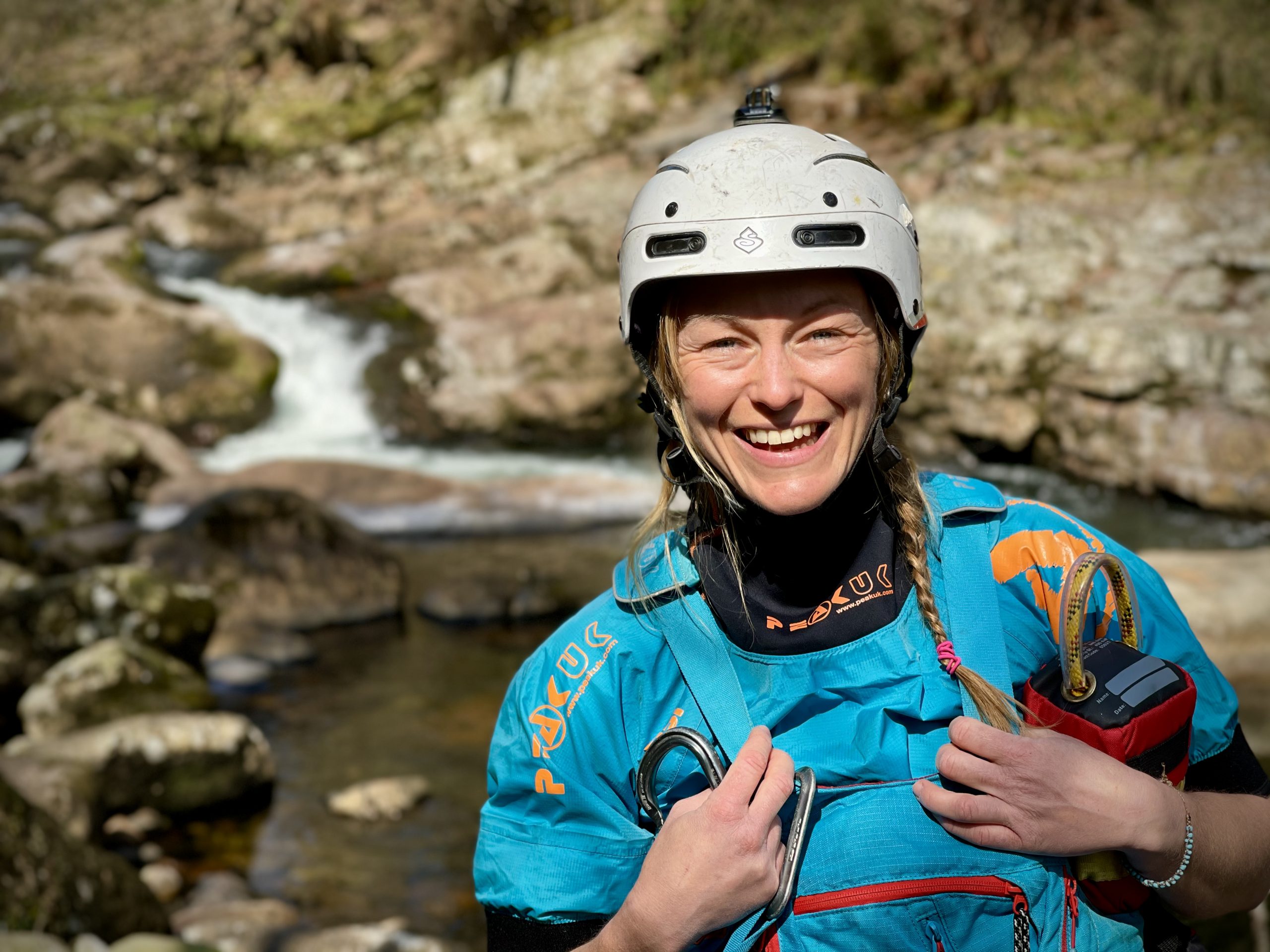
What’s your take on small kit, its availability, and top tips for making what is available work for you?
Other than me getting on your back about the small Scorch not being out yet, I generally feel like we’re in a good place with small kit. When I first started paddling there were only a couple of options of river boats across the brands that were suitable sizes for me, whereas now there seems to be loads of choices- and they’re actually boats that I want to paddle! (So get on with getting that small Scorch out Pyranha and let us go join in the fun all the bigger people are having!)
[Editor’s note: we’ve begun the physical stage of development on the Scorch Small; watch this space!!]
What’s the most important or your favourite thing about kayaking?
Having fun! Playing the river, trying new lines and different moves, surfing waves, trying to stern stall and falling on your face. Continually pushing yourself to get better.
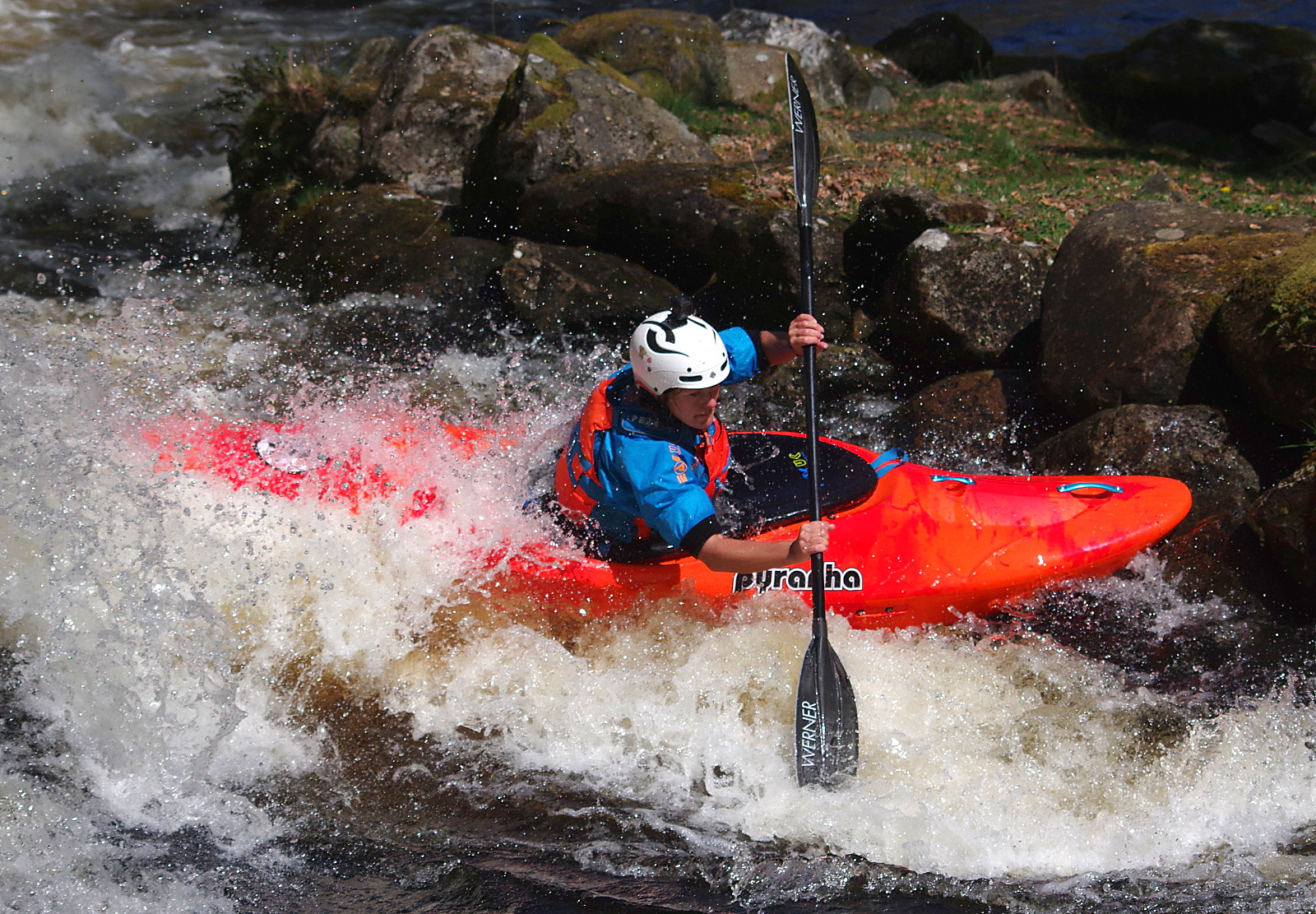
Got any tips on how to get sponsored?
Go paddling, have fun, be nice to people and maybe you’ll get some free gear, but if you don’t at least you had a good time!
You told us about calling the consultant several times a day after your injury… How important is that persistence to your lifestyle, and how easy is it to keep that up? What’s kept you motivated in lockdown?
Sometimes when you want something so bad, whether that’s a piece of game-changing kit or an operation that will determine if you get that once in a lifetime expedition, you’ll do anything to get it.
It’s the same with training. You’ll no doubt confuse people when you turn down that secure, well-paid job, or annoy friends when you prioritise your workout over going to their birthday party, but you will only get closer to achieving your goals if you persistently put the work in. And if your goals are pretty epic, then it’s all worth it and you won’t care about all the cake and booze you missed out on!
How long has fitness been integral to your boating?
My paddling began in a freestyle kayak and it was obvious to me very early on that fitness, as well as strength, power, flexibility, and agility were not only beneficial but essential if I wanted my paddling to progress. This only became emphasised when I got into river paddling and found myself trying to keep up with my bigger, stronger, guy mates whilst carrying loaded boats for long portages or difficult terrains, then immediately getting straight back into powerful whitewater and needing to be on top of my game for several more hours. I desperately wanted to be a valuable member of the team, that my friends could rely upon, knowing that I was strong enough to help them if they got into any trouble on the water.
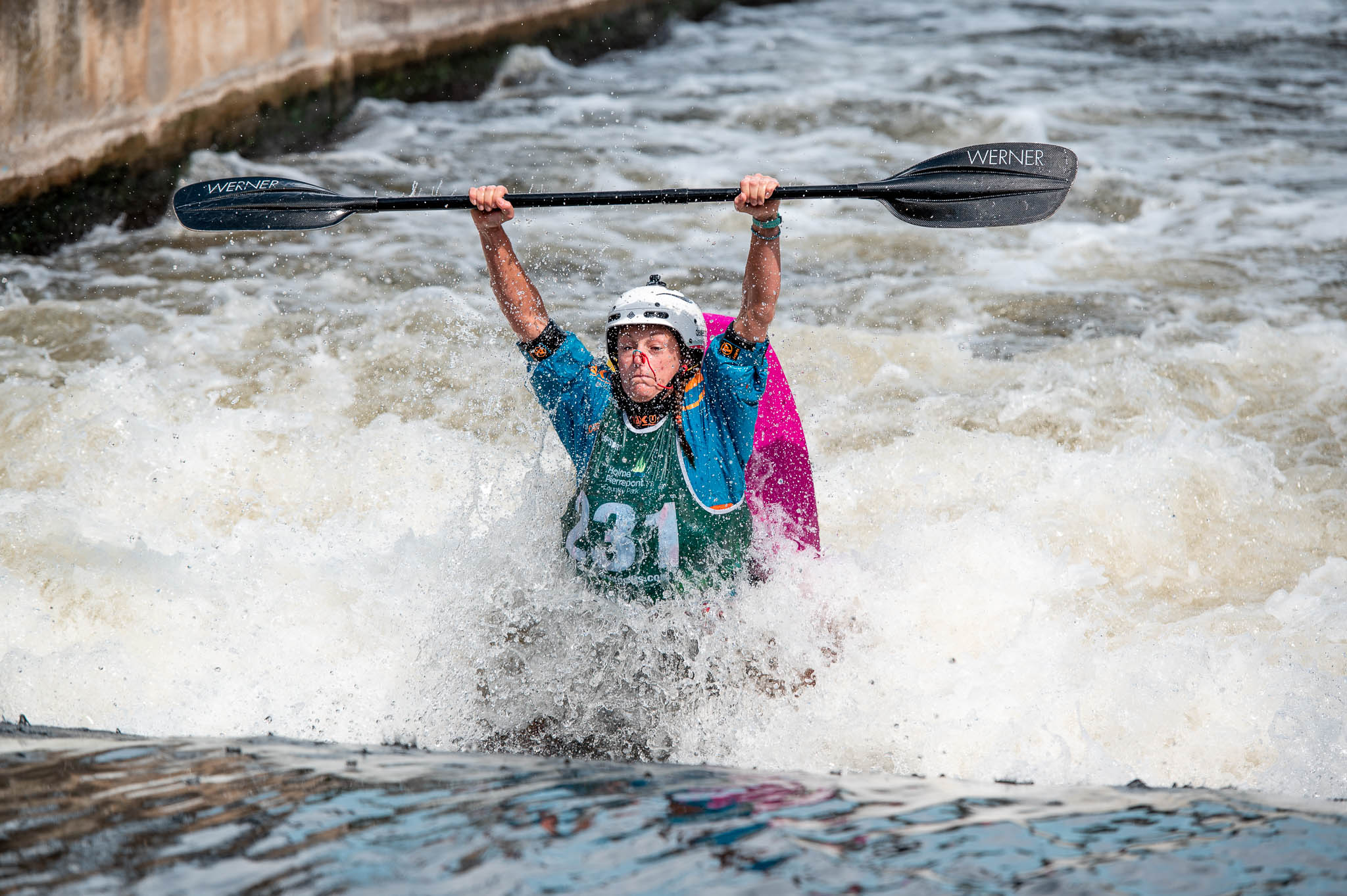
Which came first, physiotherapy or kayaking?
Kayaking by about 2 months! Some friends took me to the whitewater course and we messed about in duos and duckies, jumping in and swallowing unhealthy amounts of the Trent, and generally just having loads of fun! Shortly after that, someone lent me a kayak and I was hooked!
[Editor’s note: Sal is referring to Nottingham’s White Water Course at Holme Pierrepont]
Do you have a favourite type of person to go kayaking with?
My favourite people to paddle with are my friends that are fun, easy-going, but still conscious of what’s going on around them and always looking out for their buddies, who enjoy playing the river, trying new lines, and pushing themselves. They’re positive, motivated, encouraging and usually got a smile on their face!
Kayaking and environmental activism seem to go hand in hand… Why do you think that is?
I’ve been extremely fortunate to have spent time in wild, remote, unspoilt places around the world. These experiences have been extremely special for many reasons, but have also greatly increased my awareness and understanding of our environment. Now more than ever, I feel I have a responsibility to try to make positive changes. We gain a huge amount from the outdoors, as well as see first-hand some of the impacts our lifestyles are having. If we want to keep playing in our awesome playgrounds, we need to give something back and help to protect them.
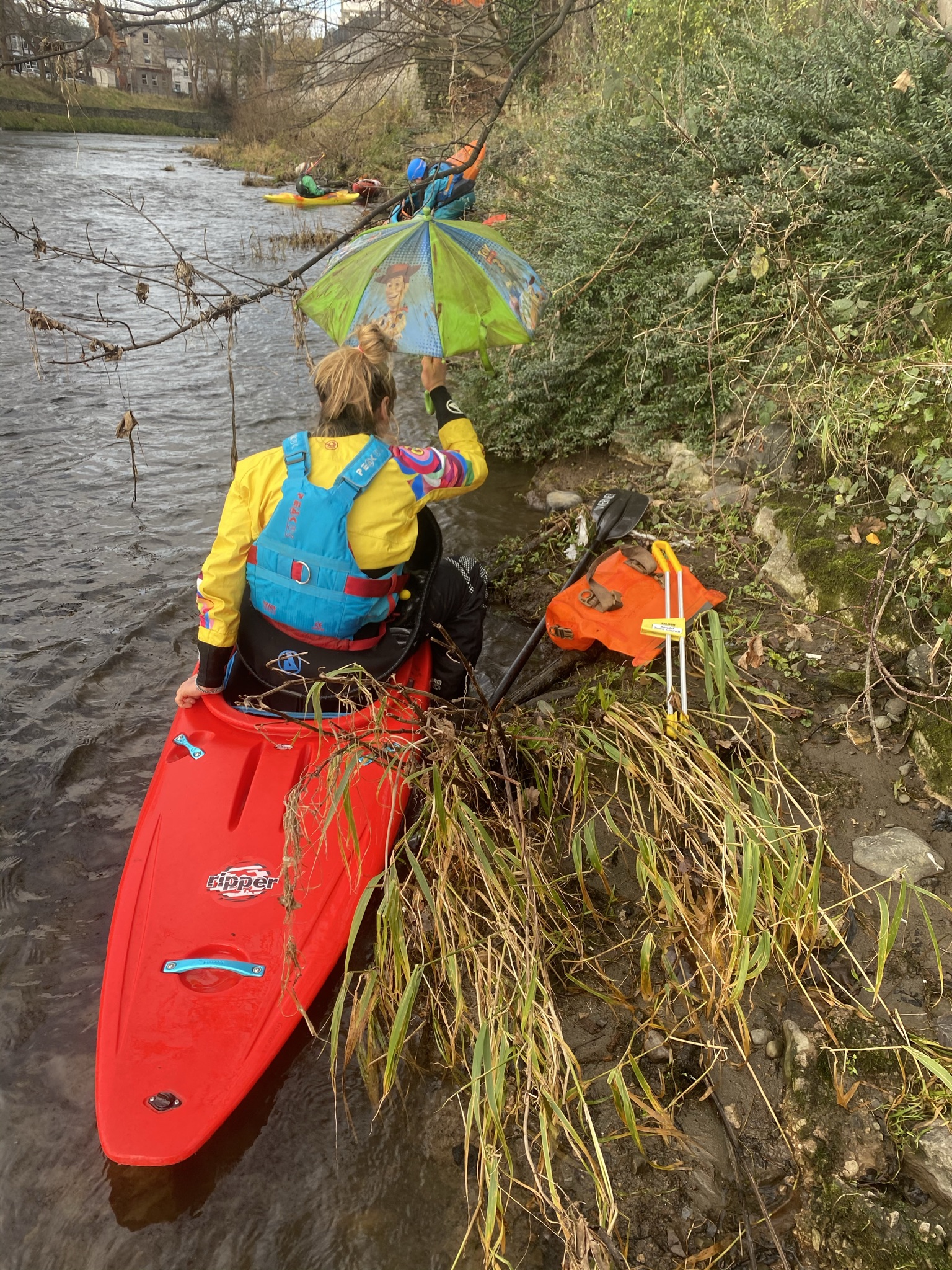
Can you describe how different kayaking is in Bhutan/Nepal to the UK/Europe?
Bhutan and Nepal are very different places compared to each other, but I guess in terms of logistics for getting to the rivers the distances are usually much bigger and more complex in these two places compared to those in Europe or the UK.
In Nepal for instance, it’s pretty standard that getting to the put-in involves 2-3 days of travelling up and down mountain passes in a bus, with your kayak tied on to the roof with string. You’ll then spend many days paddling and camping along the river, living out of whatever you’re carrying in your kayak. In Nepal or Bhutan, the journey is a big part of the adventure and means you really get to experience a place.
For Euro-paddling trips however, Brits will drive their cars or vans out and can be ticking off several sections almost straight away. You’ll come home having paddled loads of different rivers in just one week. Neither trip is better than the other, they’re just different!
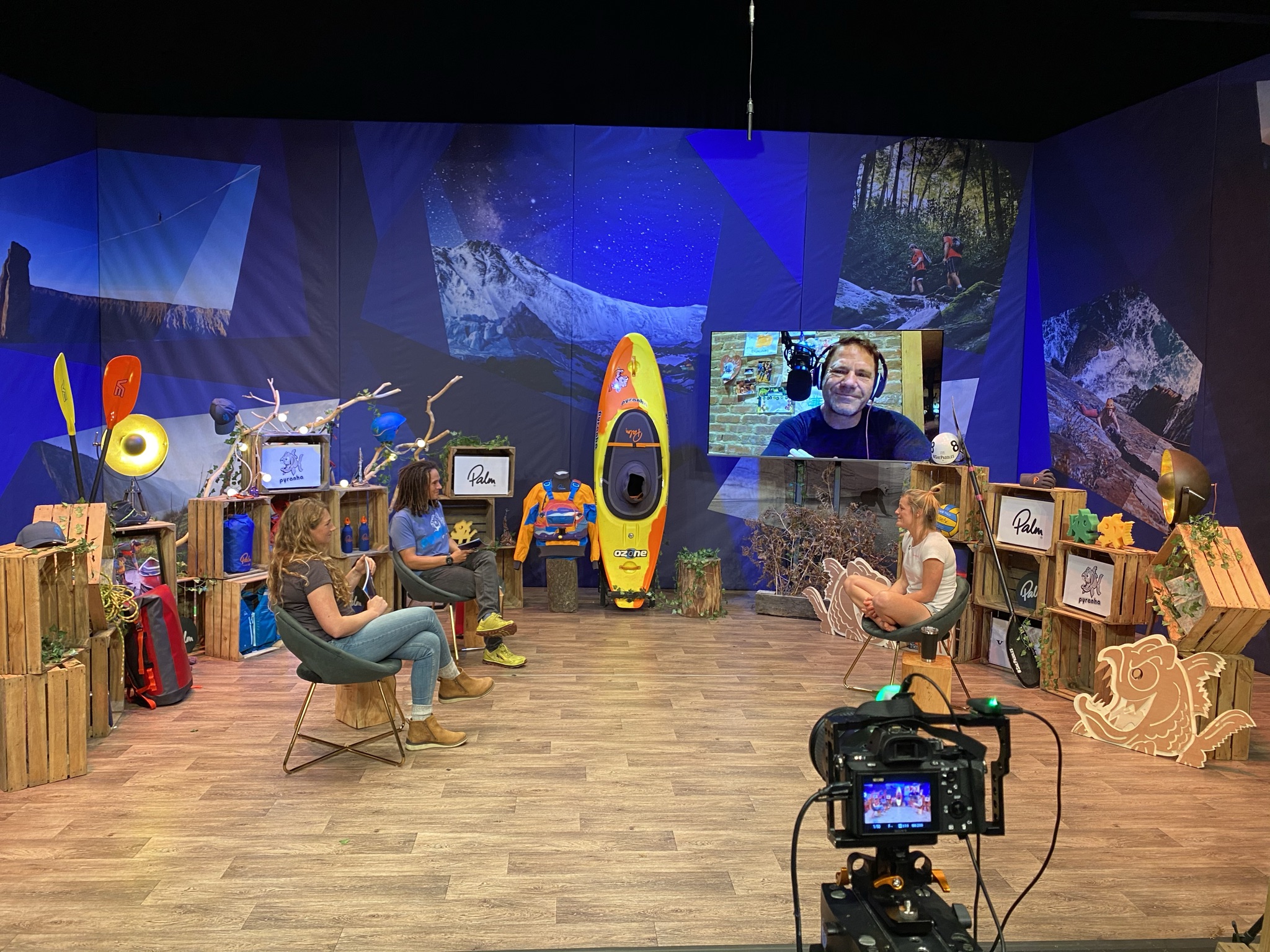
How often do you re-run or not run rapids?
Depends on the day, the river, accessibility etc. If it’s possible, I like to repeat a rapid multiple times, either trying out different moves, or just simply trying to perfect one particular line. Feels SO good when you get a smooth line consistently!
Do you think we’ll run out of new things in the world, or will the sport keep progressing and opening up new possibilities?
After having recently carried out a first descent in the most wild and remote place I have ever experienced, I can confidently say that there is still plenty of exploring left to do!
Keep an eye on Sal’s social media for updates and new paddling releases!



